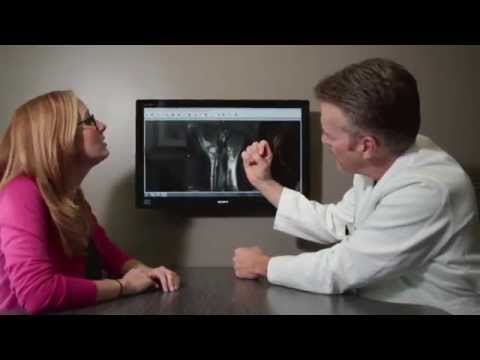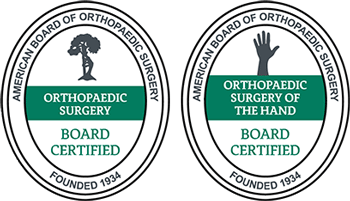5 Things You Have To Do To Prepare For Any Surgery

Have you been scheduled to undergo surgery, and you are not sure how you should prepare? There are several steps to take before surgery that highly depend on the sort of procedure that will be done. However, here are some things you can do regardless of what type of surgery you plan to undergo. These things are meant to aid in safe surgery and quick recovery.
Eat Right
In anticipation for your surgery, you don’t want to fill your body with a lot of red meat, processed foods, or anything that would be difficult to digest – surgery is stressful enough without the extra effort of digesting difficult foods. Instead, be sure to eat foods that have lots of vitamins and minerals, which are much more easily digestible and will decrease the chance of inflammation from the shock of surgery.
The foods you should eat to prepare for surgery include:
- Fruits and vegetables. They are easy to digest, assisting in maintaining your weight during post-op when your body needs to rest.
- Rice or pasta. These slow carbohydrates help to improve digestion, which is especially important before invasive medical procedures, as constipation is common after the suspension your body undergoes during surgery.
- Unsaturated fats. Fats should be unsaturated in order to be useful in this situation. Foods like this include avocados, nuts, dried fruit, and olive oil. Watch the weight of these foods – the nutrients provided can be useful but only if used in moderation.
It is also significantly important to avoid all food and drinks at least eight hours before undergoing anesthesia, as the alternative could be aspiration pneumonia or other severe complications after surgery if instructions are not followed.
Say Goodbye to Harmful Habits
Take advantage of the time before surgery to eliminate bad habits such as drinking alcohol, using tobacco products, or using any other substances which might influence your sleeping or eating patterns, or your mood. The use of these substances could affect your sleeping and anxiety in anticipation of the surgery. If you’re a smoker, putting down the cigarettes – even if the surgery is in the next day or two – will reduce the risk of a harmful reaction to the surgery or the anesthesia.
Patients with upcoming surgery also need to limit their alcohol consumption. Even drinking in moderation has been shown to increase recovery times and diminish the immune system, increasing the risk of infection after the surgery.
Talk to Your Internist
Communication is key! If you have enough time to do so, be sure to keep your primary doctor or internist apprised of your surgery. He/she might have recommendations or medication changes to make in anticipation to ensure the best outcome.
Blood pressure and blood sugar are very important factors as well and need to be under control. For diabetics in particular, the more control you have over these factors, the faster your wound will heal and the smoother the recovery will be.
Internists play an important role in preparing a patient for surgery by:
- Managing the patient’s medical needs
- Keeping up with the health guidelines for specific populations
- Choosing the right tests wisely
- Having clear and direct communication with surgeons
Tell your physician anesthesiologist everything that has to do with your health, exercise habits, and any chronic issues you may have, such as:
- Heart disease
- Diabetes
- Asthma
- Allergies
- Liver or kidney disease
- Snoring or other sleep problems (It is important to ensure you do not suffer from sleep apnea because it can make surgery and anesthesia more dangerous.)
- Any other medical condition
Also provide a list of all medications you take including prescriptions, over-the-counter meds, supplements, etc. Double-check with your doctor if you should be taking your usual medications for chronic illnesses (including diabetes, heart problems, breathing problems, or anything that thins your blood). The dosages may need to be adjusted, or you may need to stop taking some or all of them for surgery.
Exercise More Often
Try to be as active as you possibly can in the time leading up to the procedure. Doing this will help you start walking sooner in post-op. If you are not much on the athletic side, keep in mind there is so much you can do to ensure your body is getting some form of exercise.
Activities to increase fitness may include:
- Dancing
- Swimming
- Brisk walking
- Parking your car farther from the door
- Standing up while taking calls
- Cleaning activities such as vacuuming or sweeping
- Walking during commercial breaks while watching your favorite show
Adding any of these activities to your day may also improve sleep and help you maintain a healthy weight. Strengthening exercises can also be helpful for recovery.
Emotionally prepare yourself
This step may not seem like much, but it is essential. Many people fear surgery and medical procedures in general, which is natural. If you are afraid, there’s no need to be embarrassed about telling your anesthesiologist. He/she can give you information to help you feel more relaxed and ease your anxieties.
If reassurance from your doctor is not enough, adopting a positive attitude yourself and preparing emotionally and physically will also help.
Ways to emotionally prepare yourself include:
- Practicing relaxation exercises
- Performing deep-breathing exercises
- Thinking positively
- Using visualization and imaging techniques
- Learning about pain management after surgery
- Sharing questions and concerns with your doctor
- Reviewing last-minute instructions
These tips can help put your mind at ease and keep you thinking about getting home safely and returning to life as you know it. You can also always turn to your friends and family for some emotional comfort. The last thing your loved ones will want is for you to feel scared and anxious.
Spend enough time preparing. This includes staying healthy, learning about the upcoming procedure, and learning about the doctors and nurses who will be performing it. Planning is one of the most important steps to be sure your procedure is successful, the healing process is smooth, and recovery is quick and easy.

























